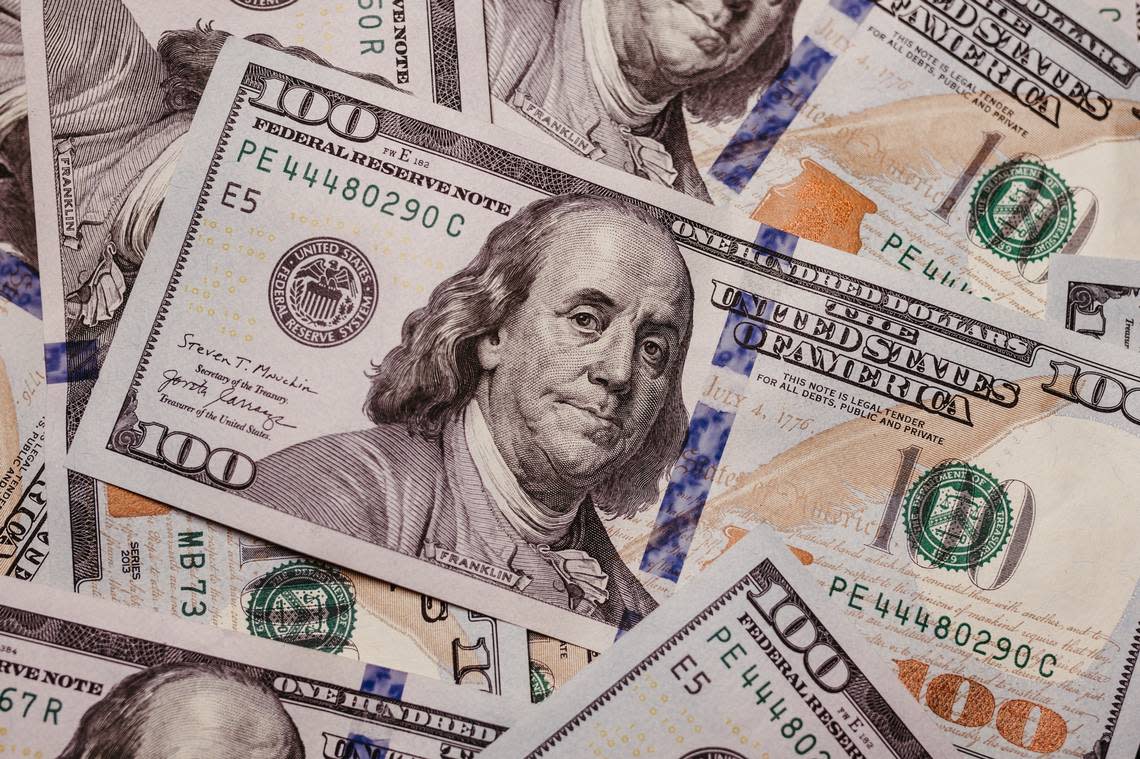Father, sons lied and claimed $21M in lottery prizes, feds say. 2 are going to prison

When a man’s accountant asked how he played the lottery so many times and continued to win, he said he was simply “lucky,” court documents show.
Ali Jaafar, 63, ranked as the top individual lottery ticket casher for Massachusetts in 2019 while his two sons, Mohamed Jaafar, 31, and Yousef Jaafar, 29, held the third and fourth highest spots that year, according to prosecutors.
Instead of having “miraculous luck,” the trio was actually carrying out a complex lottery scam that went undetected for years, prosecutors said.
The Jaafars claimed $21 million in Massachusetts lottery winnings they never won after cashing more than 14,000 tickets on behalf of true winners between 2011 and 2020, McClatchy News previously reported.
Now, a judge has sentenced Ali and Yousef Jaafar, both of Watertown, to five years in prison and 50 months in prison, respectively, on May 22, the U.S. Attorney’s Office for the District of Massachusetts announced in a news release.
“This case is, at its core, an elaborate tax fraud,” Acting U.S. Attorney Joshua S. Levy said in a statement. “Over the course of a decade, this father-and-son team defrauded the Massachusetts State Lottery Commission and the IRS to pocket millions of hard-earned taxpayers’ dollars.”
McClatchy News contacted attorneys representing the Jaafars for comment on May 23 and didn’t immediately receive a response.
A jury found Ali and Yousef Jaafar guilty of conspiring to defraud the Internal Revenue Service, conspiring to commit money laundering and filing false tax returns in December, McClatchy News previously reported.
Meanwhile, Mohamed Jaafar pleaded guilty to one count of a conspiracy to defraud the IRS in November, prosecutors said.
His sentencing hearing is set for July 25, according to officials.
The trio’s lottery scheme — which helped them avoid paying taxes and caused them to wrongfully receive $1.2 million in tax refunds — has resulted in the state lottery commission revoking or suspending the licenses of more than 40 state lottery agents, prosecutors said.
How the scheme worked
The Jaafars engaged in what’s known as a “ten-percenting” scheme by working with a “network” of individuals, including convenience store workers, to buy winning lottery tickets from ticket holders at a discount, according to officials.
These ticket holders preferred to sell their tickets for a discounted price instead of claiming them at the state’s lottery commission — which can withhold taxes and other payments before issuing the prize money, according to officials.
With ten-percenting schemes, “the ticket purchasers typically keep between 10-20 percent of each ticket’s value” and “allows the real gamblers to avoid reporting the winnings on their tax returns,” prosecutors explained in an earlier news release.
Ali Jaafar recruited his two sons to engage in the scheme, according to a sentencing memo submitted by the government.
He was able to find lottery prize winners and buy their tickets because he knew several convenience store owners and operators who sold the tickets in Massachusetts, the sentencing memo says.
At trial, one convenience store owner testified that Ali Jaafar asked her if she could let him know when a customer won the lottery and preferred a discounted, cash payment instead of officially claiming the ticket, according to the sentencing memo.
The store owner refused at first, but Ali Jaafar kept asking her to do so, and she eventually took part in his scheme, the sentencing memo says.
The Jafaars would pay the convenience store owners for their help, according to prosecutors.
After they illegally claimed multiple ticket holders’ lottery prizes as their own winnings, they made more money “by reporting the winnings on their income tax returns and claiming equivalent fake gambling losses as an offset, thereby avoiding federal income taxes and receiving fraudulent tax refunds,” the release said.
Ali and Yousef Jaafar got away with tax fraud for years by lying to their accountants, according to prosecutors.
Ahead of Ali Jaafar’s sentencing, his attorneys argued in a sentencing memo for a sentence of home confinement instead of incarceration, citing his client’s lack of a prior criminal history, his unlikeliness to be a repeat offender, his deteriorating health and his position as the main supporter of his wife.
In a sentencing memo submitted on behalf of Yousef Jaafar, the attorneys wrote there was not enough evidence to argue he was involved in the scheme since 2011, when he was a student in high school before he went on to attend college. They also asked prosecutors to consider a sentence for him that didn’t involve prison time.
Ali and Yousef Jaafar have also been ordered to pay $6,082,578 in restitution and must forfeit profits gained from the lottery scheme, prosecutors said.
Lottery winner thought phone call about jackpot was a scam. ‘I am not a lucky person’
Liquor store clerk steals customer’s $3M lottery ticket left on counter, official says
Sheriff’s office worker steals $150,000 in cash from traffic fine payments, feds say

